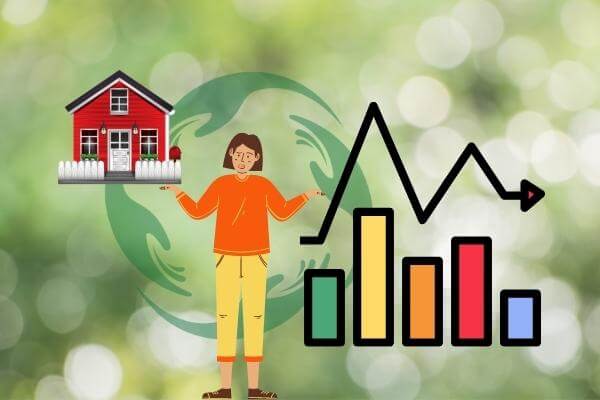Should you be worried about your house value going up or down?
No, not really. If you already own a house the value only matters if you are looking to sell it or to borrow more money for things like renovations, holidays, to get a new car or other debt consolidation.
If you are looking to buy a house remember that a house is only worth what a willing seller (Vendor) is prepared to accept from a willing buyer (Purchaser). The purchase price will become the property value when you go to the bank to get finance. Effectively the higher the price the bigger the deposit that you require, so of course the property value does affect you at that point! But once you have purchased, fluctuations shouldn’t cause too much angst.
It is really only when you go to sell the property or seek additional debt using your property as security that your property value matters. The banks will lend you a maximum of 80% of the property value when you request additional funds, assuming you can manage the new loan repayments. This process is called getting a top up loan, or an equity release.
There has been a lot of hype in the media about property values going up. There has also been a lot of talk about the pending fall of property values, as the property market changes due to the different pressures being put on the market by government and bank policies.
If you are looking to get into the property market as a new home buyer then trying to determine when the best time to buy is can be confusing – how do you know that you’re not making a mistake? As soon as you can afford to buy a property (because you have enough deposit and can get a loan to complete the purchase… a first home buyer requires a minimum of a 5% deposit, as long as you can manage the mortgage payments for the remaining 95% of the purchase price) that is the time to buy!!! Sounds simple? The hardest thing is actually finding a property that meets your needs and is in your price range, especially as a first home buyer.
When the property values drop, and there will be times in the market that they do drop, it is only if you are selling the property that the value matters. As long as you can repay your mortgage and pay for the real estate agent and legal fees then anything left over will be your profit to do with as you please. The banks will not recall (request you to repay) your mortgage if the property values drop. The banks only look at the property value if you go into hardship because you are behind in your mortgage payments, or if you are seeking the additional debt.
When the property market drops, the banks cannot afford to call in loans or request you to make additional payments to ensure that you are beneath the 80% debt to value level (LVR – read our blog about it here http://www.buildingonbasics.co.nz/lvr-restrictions/), because too many people will be affected, and the risk is too great for the banks.
With increasing inflation and increasing interest rates the ongoing affordability is going to be the biggest issue for the banks to manage. As interest rates have been low for the last 5 years there will be new homeowners that have not seen or paid interest rates of 5-8%. The Reserve Bank will look to have interest rates of around 5%, but if inflation blows out more than expected the interest rates could go higher. My first mortgage had an interest rate of 14% and I remember the times that my parents were paying interest rates of over 20%. The property value only matters in relation to the interest rates if you can no longer afford the loan repayments. This can happen for many reasons none of which have anything to do with your property value going up or down.
Here is a benefit of the property values going up – If you have purchased your home with a small deposit (less than 20%) you will have been charged a low equity fee or a low equity margin (typically between 0.1 – 0.25% on top of the standard interest rates). As soon as you have 20% equity (ie. the debt is less than 80% of the value) you no longer need to be paying the low equity margin. We can help you to get the margin removed.
So in short as long as you can afford your loan repayments your property value only matters when you go to sell, or when you are looking for more funds to do something. Buying a home is part of providing financial security for yourself and your family, and purchasing an investment property can be a strategy for building wealth for your retirement. The increase in the property values can then help you fund your retirement as long as you have paid your mortgages off and there are ways to access the equity in your property without the need to sell.
Make sense? We’d love to hear your thoughts and concerns, we are here to help. Send us an email or book an appointment with Elise at the Calendly link at the bottom of the page.

